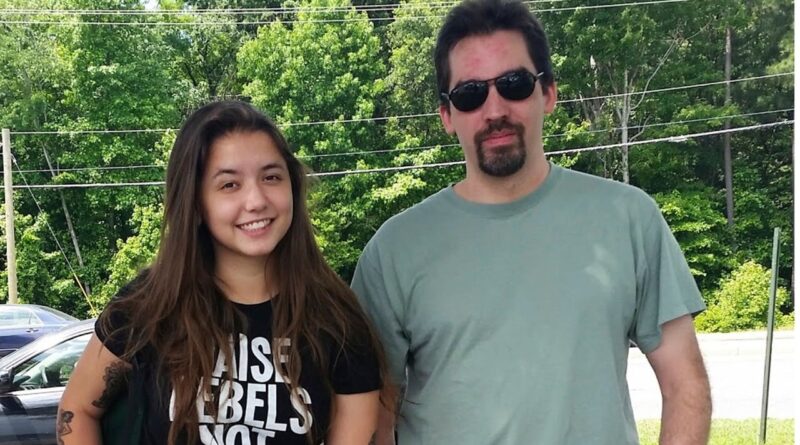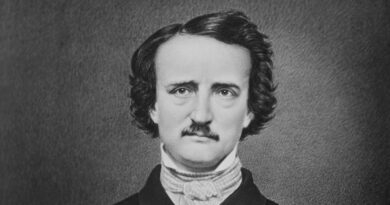The Incestuous Murder of Katie Pladl and Baby Bennett
The events of April 11 and April 12, 2018 shocked communities in North Carolina, Connecticut, and New York. At the center of the tragedy were a seven month old baby named Bennett, his mother Katie, her adoptive father Anthony, and her biological father and husband, Steven. What began years earlier as a hopeful adoption reunion became a case of incest, criminal charges, and finally a series of murders followed by suicide that stunned the nation.
Understanding how these deaths unfolded requires looking at the family history, the decisions of courts and law enforcement, and the emotional collapse of a man who had already crossed many boundaries. By the time the crime spree ended, four members of an extended family were dead in three different states, and questions remained about whether anything could have stopped what happened.
The Early Life And Adoption Of Katie
Katie was born in January 1998 in New York to Alyssa and Steven. At that time, Steven was a young man with a documented history of abusive and controlling behavior. When Katie was still an infant, concerns were raised about his treatment of her, and child welfare authorities became involved. Her mother decided that the safest choice was adoption, believing that a new family could offer the stability and care she could not guarantee while living in fear of Steven.
Katie was adopted by Anthony and Kelly Fusco of Dover, New York. They raised her as their daughter, giving her the surname Fusco. Growing up, Katie knew she was adopted and became curious about her origins. As she approached adulthood, that curiosity grew stronger. Like many adoptees, she wanted to understand where she came from, who her birth parents were, and why she had been placed for adoption.
That search would eventually lead her back into the orbit of the very man whose behavior had contributed to her adoption in the first place.
The Reunion With Her Biological Family
When Katie turned eighteen, she made contact with her biological parents. Her birth mother Alyssa had long carried guilt and sadness about the adoption, even though she believed it had been necessary. The reunion between mother and daughter was emotional and hopeful. Alyssa introduced Katie to Steven and to the younger daughters that Alyssa and Steven had together after Katie’s adoption.
Katie moved from New York to live with her birth parents and half sisters in Henrico County, Virginia. At first, family members and observers believed this might be a normal adoption reunion, with a young woman building a relationship with the family she had never known. Photos and early accounts describe joyful meetings and a sense of healing for Alyssa, who hoped that time had changed Steven enough for him to be a safe presence in their daughter’s life.
However, the household dynamics soon shifted in a way that disturbed Alyssa. She began to feel that Steven’s attention to Katie was not simply paternal affection, but something more intense and inappropriate. The emotional connection between Steven and Katie deepened in ways that ignored the boundaries that should exist between a father and a daughter, even in an adoption reunion.
Grooming, Control, And A Relationship That Crossed A Line
As the months went by, Alyssa noticed that Steven treated Katie more like a partner than a child. They spent long periods together. Steven became increasingly distant and cold toward Alyssa and more fixated on Katie. The younger girls, observing what was happening around them, eventually began referring to Katie as a type of stepmother figure, which alarmed their mother.
In May 2017, Alyssa discovered a disturbing journal entry written by one of the younger daughters. The entry clearly indicated that Steven and Katie were involved in a sexual relationship and that Katie was pregnant. When confronted, Steven admitted that he and Katie were romantically and sexually involved, and he confirmed the pregnancy.
Alyssa reported the situation to authorities. What had been a family crisis now became a criminal matter. The relationship was not only morally wrong but also illegal in the jurisdictions involved. Although Katie was an adult, incest laws still applied because Steven was her biological father.
Despite the report and initial investigation, Steven and Katie did not end their relationship. Instead, they left Virginia and moved together, continuing to present themselves as a couple.
Marriage And The Birth Of Baby Bennett
Steven and Katie eventually relocated to the area of Knightdale, North Carolina. On July 20, 2017 they married in Parkton, Maryland. On their marriage license they falsely claimed that they were unrelated, obscuring their biological connection. Some relatives attended, and although some people were deeply uncomfortable, the marriage went forward because Katie was an adult and the full legal and factual picture was not yet in front of every authority.
On September 01, 2017 Katie gave birth to a baby boy, Bennett. Biologically, he was both Katie’s son and her half brother, and he was both Steven’s son and his grandson. The child became the living symbol of a relationship that never should have existed in the first place.
For a brief time, Steven and Katie tried to live as a small family with their newborn in North Carolina. Neighbors later described them as a young couple with a baby, not realizing the complicated and disturbing biological and legal realities behind the scenes. Meanwhile, the earlier report from Alyssa and the growing recognition of the incestuous nature of the relationship continued to move through law enforcement channels.
Criminal Charges And Court Orders
In January 2018 Steven and Katie were arrested and charged in connection with their sexual relationship. Authorities in North Carolina and Virginia pursued incest charges and related offenses. The case drew media attention because of the unusual and troubling circumstances of a father and adult daughter who had married and produced a child together.
Both Steven and Katie were released on bond while the charges moved through the court system. A key term of their release was that they were ordered to have no contact with one another. Custody of baby Bennett was transferred to Steven’s mother, who lived in Knightdale, North Carolina. Katie returned to New York to live again with her adoptive parents, Anthony and Kelly Fusco.
During this period, Katie reportedly began to pull away from Steven emotionally. Away from his direct influence, and surrounded by her adoptive family, she started to reevaluate the relationship and the choices that had led her there. She is believed to have decided to end the romantic relationship and rebuild her life. That decision was a critical emotional blow to Steven.
Mounting Pressure On Steven
For Steven, the situation was closing in from several directions at once. He was facing serious criminal charges that could lead to prison. The relationship that he had pursued with his own daughter was being publicly exposed and condemned. His infant son was no longer in his direct care. Most importantly to him, Katie was creating distance and asserting her own will apart from him.
Reports later suggested that Steven became increasingly volatile and despondent. He was living in Knightdale with his mother and baby Bennett. He knew there was a strict no contact order between him and Katie. He also knew that his legal risk was high and that he was being portrayed in court records and media coverage as a dangerous and abusive figure.
Instead of accepting responsibility and working through legal channels, Steven began to plan a violent response. His actions over two days in April 2018 would end the lives of his son, his daughter, and his former mother in law, and would culminate in his own suicide.
The Murder Of Baby Bennett In Knightdale
On April 11, 2018 Steven was alone with Bennett in the home in Knightdale, North Carolina where he lived with his mother. At some point that day, he killed the seven month old baby. Investigators later concluded that the child had been deliberately suffocated and placed in a closet. The baby did not die from an accident, but from an intentional act.
After killing his son, Steven did not immediately alert anyone. Instead, he stayed in the house and began the next phase of his plan. On April 11 and into the early hours of April 12, he called his mother and made statements that alarmed her. She in turn contacted authorities and requested a welfare check on the home and the child.
The following morning, police arrived at the Knightdale residence. They discovered the lifeless body of baby Bennett and quickly realized that his death was suspicious and likely homicidal. While that grim discovery was being processed, Steven was already on the road, heading north in his vehicle toward New York and Connecticut.
The Murders Of Katie And Anthony In New Milford
On April 12, 2018 Katie and her adoptive father Anthony were driving together in a pickup truck in New Milford, Connecticut. They were traveling along Route 7 near its intersection with Route 55. They had no idea that Steven had driven hundreds of miles from North Carolina and was tracking their movements.
At approximately late morning, Steven pulled his vehicle alongside the truck carrying Katie and Anthony while they were stopped at a stop sign or light. Armed with a rifle, he opened fire into the cab of their vehicle. Katie and Anthony were each shot multiple times.
Responding officers and paramedics arrived quickly, but both victims were pronounced dead. The quiet roadway in New Milford instantly became a crime scene, with two members of the Fusco family lying dead and little immediate clarity about where the shooter had gone.
Investigators very quickly connected the victims to the ongoing incest case and to Steven. Law enforcement agencies in multiple states began coordinating efforts to locate him, already aware that baby Bennett had been found dead in Knightdale.
The Suicide Of Steven In Dover
After killing Katie and Anthony in Connecticut, Steven continued driving north into New York. He traveled toward the Dover area, close to where Katie had been raised by Anthony and Kelly and where the Fusco family home was located. The route seemed deliberate, almost as if he wanted to bring the violence back to the region that had once been a safe place for Katie.
Sometime later on April 12, 2018, police located Steven’s vehicle parked on a rural roadside in Dover, New York. When they approached the car, they found him inside, dead from a self inflicted gunshot wound. The weapon used in the earlier shooting was with him.
With that discovery, the sequence of violence reached its end. In a span of roughly one day, Steven had killed his infant son in North Carolina, driven north to Connecticut to kill his daughter and her adoptive father, and then taken his own life in New York. There would be no trial, no chance to hear him explain his actions in a courtroom.
The Impact On Families And Communities
The immediate impact on the Fusco family was devastating. Anthony, a father and grandfather, was gone. Katie, who had been trying to rebuild her life and separate herself from a toxic relationship, was murdered before she could see that process through. For Kelly and other relatives, the loss was compounded by the knowledge that they had tried to help Katie and had welcomed her back home, only to have violence still reach them from outside.
For Alyssa, the birth mother, the tragedy carried another set of layers. She had lost the daughter she placed for adoption in hopes of protecting her and giving her a better life. She had lost a grandson who never had the chance to grow up. She was left to live with the knowledge that the man she had once married and feared had destroyed so much of the family they had created.
Communities in Knightdale, New Milford, and Dover were left grappling with a story that defied simple explanation. Neighbors who had seen Steven and Katie as an ordinary couple with a baby now understood the horrifying reality behind their relationship. Residents who drove those same roads in Connecticut and New York now knew that multiple killings and a suicide had taken place on ground that looked peaceful and familiar.
Questions About Systems And Warning Signs
The Pladl case raises complex questions about how systems handle overlapping issues of abuse, incest, mental health, and criminal risk. There had been warning signs for years about Steven’s controlling behavior. Alyssa had reported the abuse that led to Katie’s adoption. She later reported the incestuous relationship and pregnancy. Law enforcement agencies did respond and eventually brought charges, and the court imposed a no contact order. Yet none of that prevented the murders.
One of the most difficult questions involves pretrial release and bail. Steven was facing serious charges and there was evidence of manipulation and grooming. Still, he was allowed to remain out of custody with conditions rather than being detained until trial. The balancing of defendants’ rights with community safety is a constant challenge, but this case has been cited as an example of how a dangerous person can still act even when legal constraints exist on paper.
There are also questions about the support available to victims who come out from under the influence of an abusive relationship that involves grooming, incest, or similar patterns. Katie was only just beginning to separate herself from Steven when she was killed. Advocates have argued that such victims need intensive safety planning, concealed locations, and robust monitoring of the abuser, especially when children are involved and the abuser has access to weapons and transportation.
Remembering The Victims
Behind every legal term in this story there are four lives that ended far too soon. Bennett was a baby who never experienced his first birthday or his first steps. Katie was a young woman trying to reconcile her identity as an adoptee with the complicated realities of her biological family. Anthony was an adoptive father who had provided a home and love to a child he had raised as his own. Even with Steven’s suicide, some family members have expressed that they lost not only the victims of his violence but also the possibility that he might one day accept responsibility and explain his choices.
The murders and suicide in April 2018 stand as a reminder that family violence can take many forms, including those that are deeply entangled with adoption, reunion, and long buried histories of abuse. The story of baby Bennett, Katie, and Anthony is a stark warning about what can happen when grooming, incest, and untreated dangerous behavior intersect with gaps in legal and support systems.
For the families left behind, the focus is now on remembrance rather than on the man who caused the harm. They remember a smiling baby, a creative and hopeful young woman, and a father who worked and cared for his family. Their lives are more than the way they ended, even though the manner of their deaths will always be part of how the world knows their names.
Discover more from City Towner
Subscribe to get the latest posts sent to your email.




